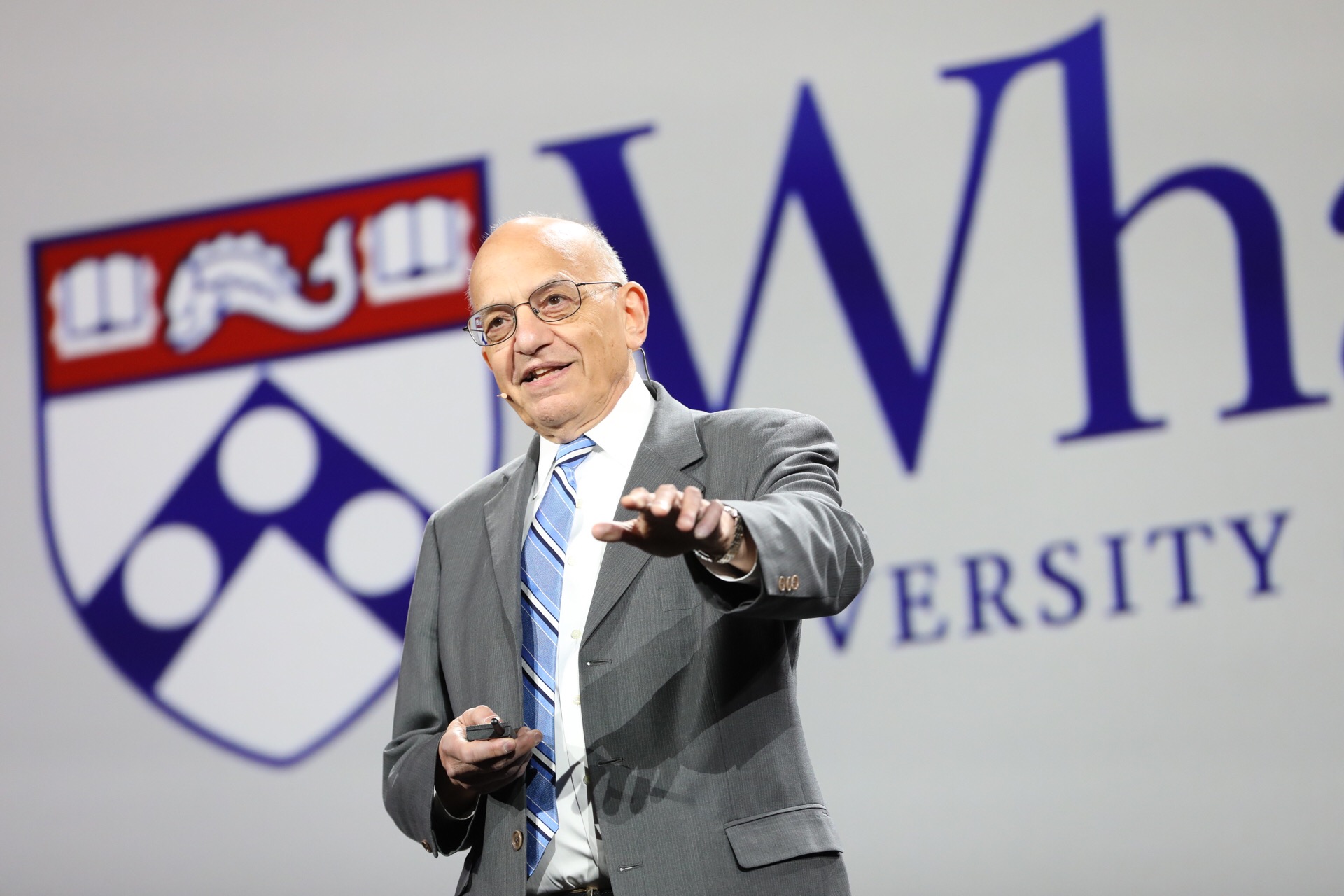 Prof. Jeremy Siegel speaks at LINC 2018. (Photo: Lila Photo for TD Ameritrade Institutional)
Prof. Jeremy Siegel speaks at LINC 2018. (Photo: Lila Photo for TD Ameritrade Institutional)
Wharton professor Jeremy Siegel said Monday that the country is in "need of presidential guidance—this is the time when calm concern should be expressed and [helpful] measures need to be taken.
"Tens of millions of Americans cannot work from home," explained Siegel, who is also a senior investment strategy advisor for WisdomTree. "This is a big concern … [and] maybe we need delayed payments/forgiveness periods for debt, mortgage obligations, or tax payments."
As Siegel spoke on a call with investors late Monday, President Donald Trump was discussing a possible payroll tax cut and other relief measures in response to the coronavirus at a press conference. (These remarks pushed stock futures up in after-hours trading.)
"This is the time for politicians of both parties to come together," Siegel added, "and I think they will. We have to get these loans [and other steps] in place. … I am not convinced we can prevent a recession. At 11 years, this is longest expansion in economic history—but all good thing come to end."
As for different investments, the finance guru says dividend-paying stocks "are the new bonds" when it comes to providing yield, while long-term bonds "are the new gold" and "the new VIX" volatility indicator.
"The negative beta property of Treasuries has been growing, and as long as bonds are viewed as a hedge, we're going to have extremely low yields," he added.
Though he doesn't like gold as a long-term asset, Siegel sees it as a better short-term, defensive holding than bitcoin: "Bitcoin was down 14 percent today, so that won't help its image as a stock hedge."
Oil Spill
Addressing what happened to the markets on Monday, Siegel explained: "It's been quite a day, with a 7 percent-plus decline—and it's ironic that 11 years ago to the date the great bull market began. I can recall the S&P 500 at 676 and the Dow at [about 6,500]. Another 2 to 3 percent would bring us our first bear market in 11 years."
He said the big drop was due "about 50 percent to the oil situation and 50 percent to other concerns associated with the coronavirus."
"We are no longer an importer and are now an exporter of oil," said Siegel. "As such, we should suffer the loss of real economic income. While users (like drivers) gain, the loss to producers should be greater—which has not been the case before … We have about $1 trillion in capital locked into the energy sector, directly and indirectly."
Other effects include putting "tens of thousands out of work, and it up-ends renewables, since no renewable energy source can compete with [cheap oil]," he added.
Those energy firms with significant debt on their balance sheets "likely will not survive," Siegel said. "There's going to be tremendous consolidation."
He'll be watching what Exxon—which is not in that situation—will do with its dividend; the dividend yield on its stock today is about 9 percent. "They've never reduced it and have only increased it, even with low oil prices," he pointed out.
'Other Shock'
As for the coronavirus, Siegel worries that we "will need to quarantine and selectively quarantine [some parts of the U.S.], and what does that mean for earnings? If we expect a bounce-back [from the virus], then it should not warrant a 20 percent decline [in stocks]." (After Monday's close, the Dow was down 17.4 percent year-to-date.)
Allianz Chief Economic Advisor "Mohamed El-Erian said we should drop 20 to 30 percent from the top. I'll give him credit. He made a good call early on about how serious this might be," said the Wharton professor.
"The argument could be made that the market was about 10 percent overvalued earlier this year," he added "but … then, we shouldn't expect to see more than a 10 percent decline."
Returning to the topic of earnings, Siegel said there's often a 20 to 30 percent drop in recessions and as much as a 40 to 50 percent decline in very bad bear markets like that of the 2007 to 2009 financial crisis, when "problems were tied to overbuilding and over-investing, which take years to liquidate and repair."
For 2020, he expects consumer discretionary spending to be hurt as people stay home and spend less on entertainment.
"This is not the 'big one' in terms of a pandemic," the finance guru noted, "but clearly it's a shot across the bow for the need to be much better prepared than we are today in terms of monitoring and quarantining."
From: ThinkAdvisor
© 2025 ALM Global, LLC, All Rights Reserved. Request academic re-use from www.copyright.com. All other uses, submit a request to [email protected]. For more information visit Asset & Logo Licensing.




